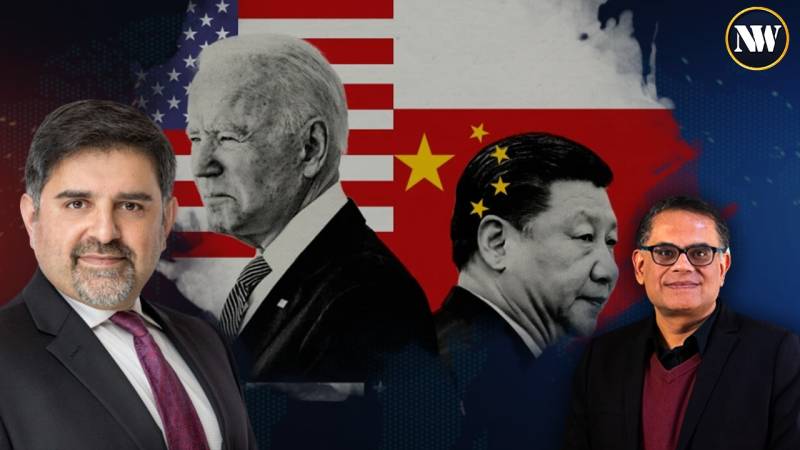Pakistan finds itself at a critical juncture, seemingly caught between two giants: the United States and China. The narrative of a "Do or Die" situation has garnered attention, with speculation rife about Pakistan's supposed need to choose between these two superpowers. To unravel the intricate web of Pakistan's relationships, economic challenges, and the evolving U.S.-China rivalry, we turn to Kamran Bokhari, Director at the Newlines Institute in Washington, D.C., who offers insights into the choices facing Pakistan's policymakers.
The notion or myth of binary choice that Pakistan must pick sides between the U.S. and China oversimplifies the complex reality on the ground. Kamran Bokhari dismisses this notion, asserting that both the U.S. and China understand the necessity of Pakistan maintaining relations with multiple partners. While the U.S.-China rivalry garners headlines, the key focus for Pakistan should be on its internal challenges, particularly its economic and financial woes.
Pakistan's economic concerns loom large, and its engagement with China and the West has significant implications. While China has extended financial support, it's essential to recognize that these short-term measures don't address Pakistan's long-standing financial issues. Both China and the U.S. are hesitant to fully address Pakistan's financial predicament, and the imminent resolution remains unclear.
China's willingness to assist Pakistan financially stems from its strategic interests and its substantial investments in the country. The fear of these investments collapsing compels China to provide assistance, even if it's a stopgap measure. However, it's important to note that China's actions don't constitute genuine aid to address Pakistan's systemic economic challenges.
Historically, Pakistan's relationship with the U.S. has been multifaceted, influenced by Cold War dynamics and strategic calculations. Kamran Bokhari underscores that Pakistan's policy of maneuvering between the U.S. and China isn't new. While the U.S. has played a crucial role in aiding Pakistan during specific periods, today's economic landscape poses different challenges.
The intensifying rivalry between the U.S. and China isn't a direct reenactment of Cold War dynamics. Unlike the U.S.-Soviet standoff, the U.S. and China have intricate economic ties, with both countries being major players in each other's markets. The hyperbole surrounding this rivalry shouldn't overshadow the unique nature of their interdependence.
Amid the U.S.-China rivalry, Pakistan also grapples with regional tensions, particularly between India and China. While the chances of a full-fledged conflict are slim, miscalculations and misperceptions can lead to unexpected escalations. Pakistan must navigate these dynamics with prudence, guarding against entanglements that don't align with its interests.
As Pakistan stands at this geopolitical crossroads, Kamran Bokhari advises a nuanced approach. Diplomatic finesse and adept statecraft should guide Pakistan's actions. Prioritizing economic stability and addressing financial challenges must take precedence. Pakistan can engage with both the U.S. and China without compromising its interests while avoiding becoming entangled in confrontations that detract from its immediate concerns.

